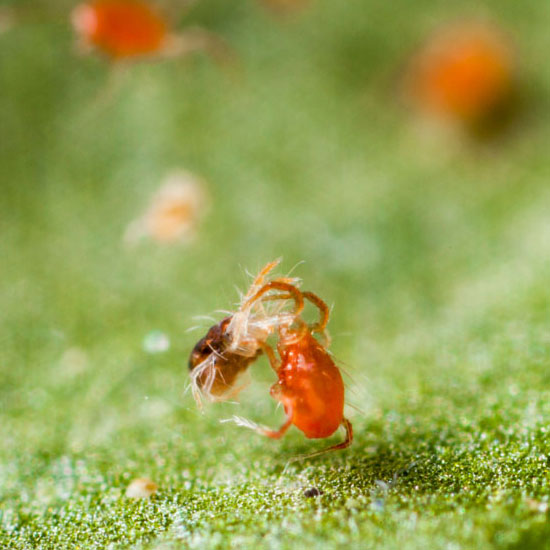As a percentage of expense (22%), we spend considerable effort in controlling insect pests and weeds on our farm. Invoice statements from a supplier arrive with esoteric names such as Intrepid 2F, Teb 45DF, AbbA Ultra, Luna Experience, Provoke, Deploy… These are chemicals that are broadcast to keep from losing the war. We are doing battle against freeloading critters and pesky weeds that seek to throttle our production yield; if not choke off our margins of gain entirely. It is a challenge to figure out into which manner of classification we must group them. Insecticide, Pesticide, Fungicide, Herbicide?
In the vineyard we are up against hairy fleabane, horsetail, johnsongrass, powdery mildew, leafroller, leafhopper, and spider mites, to name the usual suspects.

There are other ways to fight. The organic option may become the holy grail at some point. For instance: ladybugs, lacewing and minute pirate bugs, are all voracious predators beneficially consuming the leafhopper larvae and their eggs. Sixspotted thrips are a natural predators of the mites. Organically acceptable methods include biological and cultural control schemes such as oil or soap sprays. Unfortunately, the sure thing – nuke option – with chemicals cannot co-exist with the natural predators. There’s no discrimination between friend or foe.
A third solution? Genetic resistance as cost-effective and environmentally friendly method. However, this would entail the deployment of a new grape variety — not a trivial conversion. Furthermore, our adversaries enately adapt to new environments and challenges. Who’s to say that they or some relation might not evolve to savor the newest iteration.
We already know that deviant pests can become tolerant to the nasty chemicals that we throw at them. In fact, every season we strike with different blended variations to catch them off guard.
And so the struggle goes. Like to join up for the cause? Thirst for learning? Here is a Knowledge Expectations link that outlines what one must command in order to gain the rank of [accredited] Agricultural Pest Control Adviser (PCA).